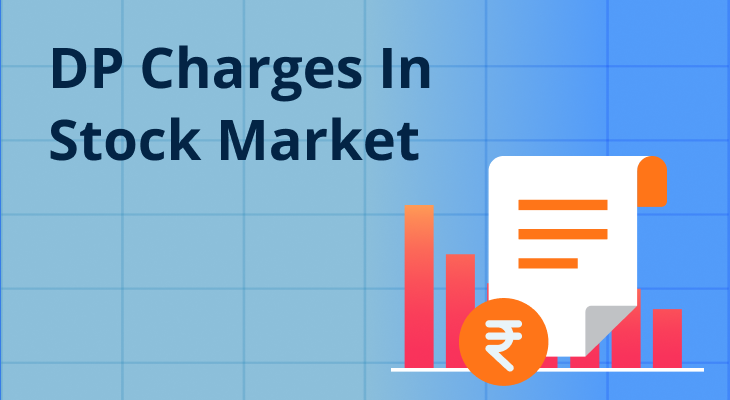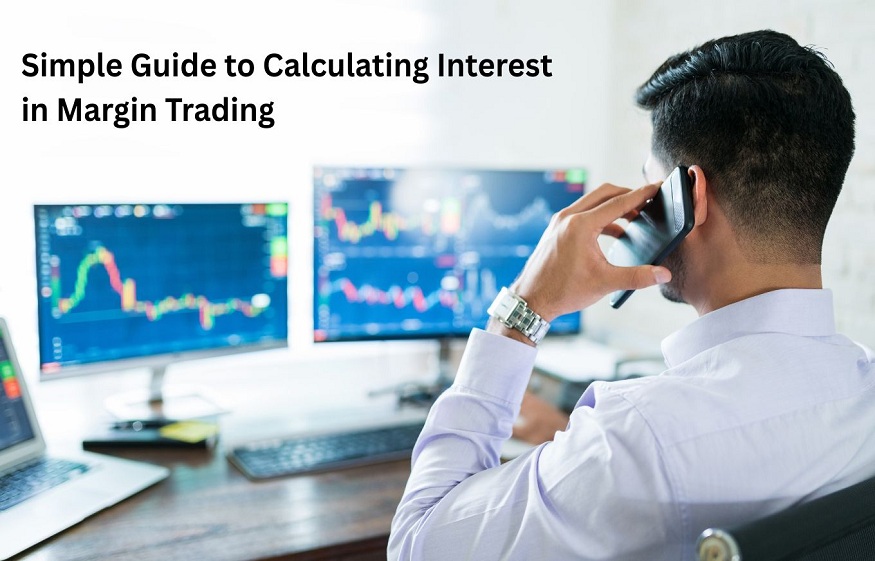What Do DP Charges Mean in the Share market?
When you sell shares through your demat account, you will be subject to DP Charges. Investors have to open a demat account for transacting in the share market. No matter how many shares you sell, the DP fees will be a fixed rate. This article will explain what DP Charges are, why they are necessary, and who imposes them using a real-world trading example.
Definition of DP Charges
Depository Participant Charges is the full form of DP Charges. When you sell shares through your demat account, you will have to pay the DP Charges. A Stock Broker (Depository Participant) and Depository (NSDL and CDSL) charges this DP fee. Let’s learn more about depositories.
What Are Depositories?
Government agencies (NSDL & CDSL) that offer stock brokers demat services are called depositories. Depositories store all the data related to demat accounts. Each stock broker must register with NSDL, CDSL, or both, and is referred to as a Depository Participant. All of the shares you purchase on the stock market are kept secure by the Depositories, not by stock brokers.
Buy and sell crypto currency so visit here swissmoney
Before offering clients a demat account, a stockbroker must enrol as a depository participant. They also have to pay numerous additional set rates and advanced prepaid transaction fees in addition to a lakhs-worth membership fee to NSDL or CDSL. The brokers charge their customers an extra fee to compensate for these expenses. Let’s take a closer look at NSDL & CDSL.
National Securities Depository Limited (NSDL)
Promoting the NSDL as a depository is a cooperative effort between the NSE and the Unit Trust of India (UTI). For NSDL, several entities such as Depository Participants, Clearing Corporations, Share Transfer Agents, and others carry out different tasks. NSDL’s commercial partners are referred to as the Depository Participants.
DPs are required to be NSDL members in order to offer services to clients and clearing companies. Only through DPs are the different NSDL services accessible. But first, you have to create a depository account with the DP. The DP Charges levied by the NSDL are INR 17.50 (INR 13 + 4.50) every sell transaction, per day.
Central Depository Services of India (CDSL)
The BSE and other public sector banks both support CDSL. The DPs act as a bridge between you and the CDSL. Investors can get account statements from DPs at regular intervals. The CDSL administers and records the balances in your account using DPs. Each transaction in which you sell an asset costs the CDSL INR 18.50 (INR 13+5.50) every day.
When Do You Actually Pay The Fee?
Unlike other expenses like brokerage costs, stamp duties, etc. DP fees are typically fixed. Therefore, it makes no difference how many shares you sell—one or a thousand. The price does not change. Additionally, the DP charge is not included in the contract note that the broker issued you because it is added to the ledger. After T+2 days, when you place a buy order, the share(s) are credited to your account. When you place a sell order, your account will be debited in T+2 days for the share(s) you ordered.
DP Charges on Intraday Trading
Whether DP Charges apply to intraday trading is unclear to many. The short answer to this question is “No.” When trading intraday, you will buy and sell shares without having them sent to your demat account.
DP Fees are only assessed when you utilise the Demat account’s features (i.e., when you sell shares from your Demat account). Aside from DP costs, investors often pay DPs four other sorts of fees and charges: the opening fee for a demat account, annual maintenance fees (AMC), transaction fees, and custodian fees.
How To Avoid Or Reduce DP charges?
Avoiding extra fees is a concern for many traders and investors. Here are some suggestions to assist you reduce your DP costs.
- Since shares are not placed into your demat account during intraday trading, DP fees are not applicable.
- Futures and Options (F&O) are not subject to DP fees. Trading in F&O allows a trader to avoid paying this fee.
- BTST trading is the practice of purchasing a share and selling it the next day. As the shares are sold before they are credited to the demat account, this can help save on DP fees.
- You can open your demat account on a demat account app with a brokerage house that charges less. blinkX, for instance, waives the demat account opening fees, you can save more money. Trading and investing are also made simple by inexpensive DP charges. Open a demat account with blinkX to benefit from incredibly low DP fees.
Conclusion
It’s vital to remember that each broker has their own set of fees in addition to the depository costs. You should be informed of the numerous fees and charges that are applicable while trading if you’re considering making an investment in the stock market.



